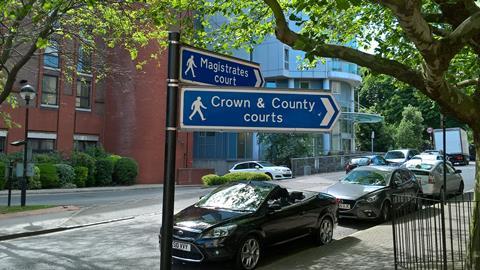In total, 295 court facilities were closed in England and Wales between 2010 and 2019, with court sitting days slashed. There was a backlog of 39,000 Crown court cases by the start of the pandemic.
Anyone trying to argue the current backlog is down to Covid-19 is being economical with the truth; the problems are deeper rooted. When lockdown happened, our fragile justice system was ill-prepared to deal with it (albeit HMCTS deserves credit for facilitating remote hearings).
But these are conversations that ultimately don’t get us anywhere. The backlog is there and there are limited choices now about how to reduce it. Unpalatable decisions have to be made and compromise sought.
This week’s communication from the Ministry of Justice, trumpeted in advance as the Coronavirus Recovery Plan, was an opportunity to set out details about what these choices would be, giving those on the front line as much as detail as possible and starting the conversation about what will be possible in the coming months.
But the recovery plan was neither a signal of imminent recovery nor a plan of any description. Instead we were given a series of vague timescales for implementing changes to the way the courts operated, with no detail, supporting evidence or reasoning.
Most immediately concerning for lawyers will have been the confirmation that extended operating hours will start from this month. No word on what those hours would be, which courts would open later and longer, and what jurisdictions this would affect. (it goes without saying that ‘extended hours’ is misleading, as lawyers already work extended hours way beyond what is seen in the courtroom).
You cannot simply insist that people attend court in evenings and weekends without some notice, and this will disproportionately affect those with caring responsibilities at home who can’t drop everything at the beck and call of the courts service.
And whatever happened to the pilot scheme run at Manchester and Brentford earlier this year, which was designed to test the efficacy of opening courts for longer? The full evaluation is still being worked on – that is understandable – but there must be a case for publishing early conclusions before we go ahead with extended hours.
None of this is easy, everyone accepts that. The backlog cannot be allowed to get worse. But there must be detail behind the announcements, and an acceptance that major changes will need the acquiesce and goodwill of court users. Vague pronouncements such as we had this week solve little and antagonise those who will be relied upon to make things better.





































No comments yet